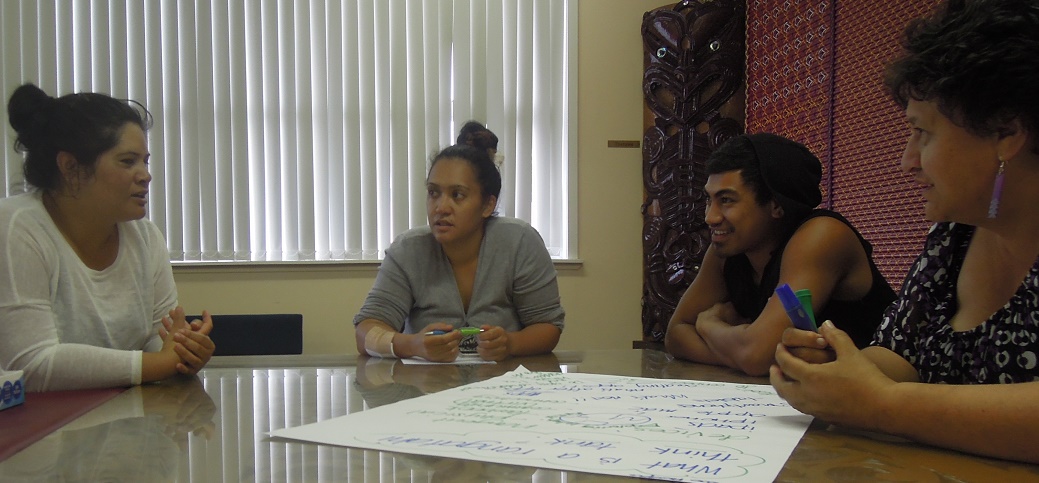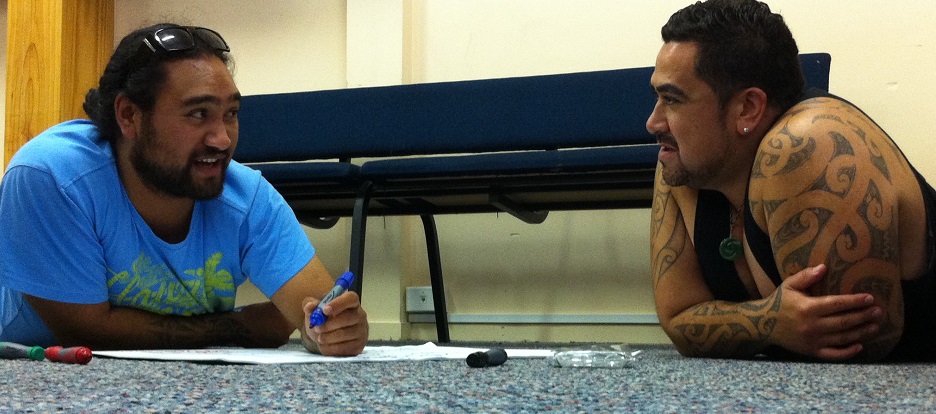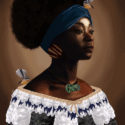Rangatahi are integral to E Tū Whānau – their vitality, fresh perspectives and command of present trends and technologies will help to shape a new future for Māori. Capturing the collective power of rangatahi was the focus of a hui held on the Ruarakai family marae at Ōmarumutu near Ōpotiki at the end of 2013.
The hui brought together a group of Māori working with rangatahi to think about what was needed to develop a rangatahi strategy. It was led by E Tū Whānau staff member Parehuia Mafi.
“We started to work out how to create a strategy that will reconnect our rangatahi with their Māoritanga. We want to find the best ways to bring them together to plan a future that builds on our strengths and is strongly connected to our manaakitanga,” said Pare.
The tension between connecting through technology and connecting kanohi ki te kanohi was a common issue during the two-day hui. It was recognised that while social media like youtube and facebook are important tools for sharing and relating, they need to happen alongside face to face contact wherever possible.
Rangatahi ‘think tank’
“We talked about the idea of a ‘think tank’ for rangatahi,” says Pare. “We see it as a way to involve our young people in having a say in the future; a future they create for themselves.”
 Tareha O’Reilly from Flaxmere, Hastings, described a rangatahi think tank this way – “it encompasses our wairua. When we come together, when we are united, we can achieve so much more”.
Tareha O’Reilly from Flaxmere, Hastings, described a rangatahi think tank this way – “it encompasses our wairua. When we come together, when we are united, we can achieve so much more”.
Dickie Farrar from Te Whakatōhea in Opotiki, wants to make good use of the way rangatahi think.
“They think outside the box – in a contemporary, youthful way – we need to capture that.”
Support rangatahi
Tipene who works with youth in Flaxmere said, “We need to use a net to catch the rangatahi if they fall through the gaps at school. We need to also support them if they are living their lives on the internet.”
Pare notes that this was the beginning of a journey for rangatahi getting involved in E Tū Whānau.
“This was the first step in what we hope will be a series of hui culminating in a national hui for our young people.”
“If we want rangatahi to get involved and stay involved, then they have to be the ones that come up with the overall rangatahi strategy – it has to work for them!”



